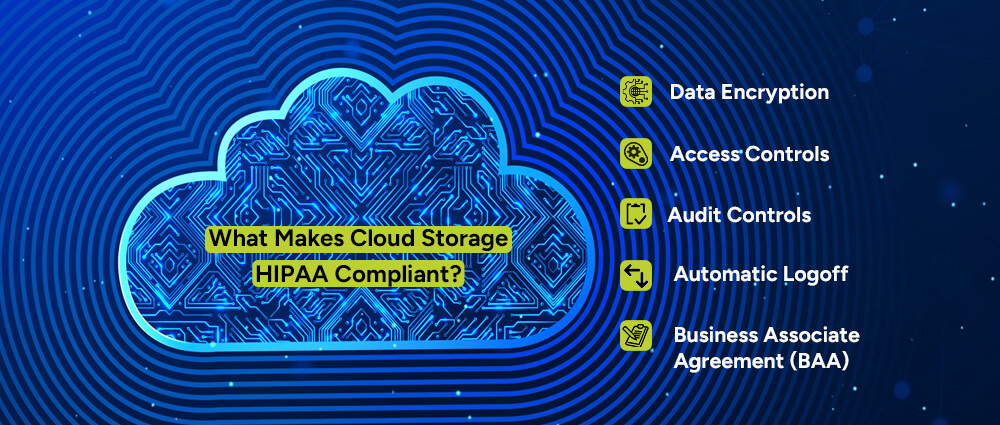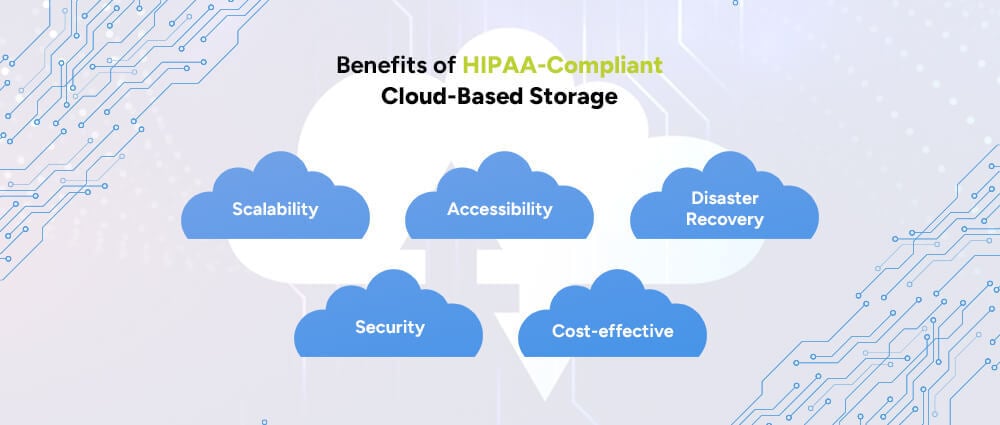For healthcare professionals in the U.S., HIPAA dictates what can be used, and they essentially should be taking one priority above all else: compliance with the rules. Under the Health Insurance Portability and Accountability Act HIPAA, the standard has become that sensitive patient information will be held as proprietary as more and more providers become cloud-centric and reliant on technology-based solutions for documentation and communication, and thus, ensuring HIPAA-compliant cloud storage is paramount.
Today’s focus will be on why specific cloud storage is HIPAA compliant, the importance of it in the healthcare field, and how exactly one should choose the best HIPAA-compliant cloud storage solutions for their practice. Whether big or small, every system has to know and implement the cloud format for storing data that ought to be HIPAA compliant in its operations to keep patients’ trust safe and satisfy all legal requirements.
It is essential in modern healthcare to have fast yet safe and dependable patient information access. Electronic health records (EHRs) and everything they hold lab results, imaging files, etc. The data run high, and so do the responsibilities surrounding its safety.
Cloud storage HIPAA-compliant solutions allow healthcare professionals to:
Patients’ histories, medications, and notes can be accessed anytime, anywhere by clinicians through HIPAA-compliant cloud-based storage, allowing mobile devices and flexible, responsive care.
Easier data-sharing between departments or practices may lessen miscommunication and delays in treatment plans, as well as allow greater coordination of care across the establishment.
There are facilities in-built for disaster recovery in the HIPAA-compliant cloud storage software protecting against all forms of hardware failure, cyberattacks, or natural disasters.
By migrating to the cloud architecture and using compliant storage, providers can ensure that patients receive timely, well-informed care while keeping sensitive data protected from breaches.
However, not all cloud storage is created equal. So, is cloud storage HIPAA-compliant by default? Not necessarily.

To be considered HIPAA-compliant cloud storage, the role of cloud-managed services is to implement several technical, physical, and administrative safeguards. These include:
Both at rest and in transit, encryption and cloud cryptography ensure that even if data is intercepted or accessed without authorization, it remains unreadable to malicious actors.
This means role-based access and multi-factor authentication. This way only authorized individuals would have access to patient data, and access must be limited based on job roles to minimize risk.
Logging and monitoring user activity enables you to have audit logs that help you track who accessed what data and when it was accessed. This helps support transparency and detect suspicious activity.
This feature enables authorities to prevent unauthorized access. Inactivity triggers an automatic logoff, protecting against situations where a user forgets to sign out from a shared or public device. So, whether you use a private or hybrid cloud, your user data is safe at all ends.
The provider must sign a BAA outlining their responsibilities. A BAA is a legal document that ensures the cloud provider is contractually bound to safeguard PHI (Protected Health Information).
Without these features, cloud storage is not considered HIPAA compliant.

Choosing HIPAA-compliant cloud storage software offers many advantages:
If you have started small in a clinic, easily grow with your practice. Whether you’re a solo practitioner or expanding to multiple clinics, HIPAA-compliant cloud storage solutions can adapt to your data needs without major infrastructure changes.
Pay for what you need, when you need it. Instead of investing in expensive on-site servers, cloud Cost-optimization of HIPAA-Compliant Cloud-Based Storage enables you to only pay for the cloud resources you use, which helps manage budgets better.
Access records securely from any device or location. Clinicians can review files from home, during emergencies, or on the go, improving continuity of care and patient outcomes.
Take advantage of Advanced encryption and access protocols to keep data safe. Cloud based storage HIPAA compliant systems employ strong security standards to reduce the risk of unauthorized access or data leaks.
Backups ensure that data isn’t lost in emergencies. HIPAA compliant cloud storage solutions regularly back up data and have plans in place for quick recovery, so healthcare services aren’t disrupted during crises.
This not only improves operational efficiency but also strengthens patient care in a HIPAA-compliant cloud by making vital information available when and where it’s needed most.
If you’re wondering what cloud storage is HIPAA-compliant, here’s a list of some of the best HIPAA-compliant that effectively work with cloud infrastructure management in the USA:
Small healthcare practices often assume HIPAA compliance is too expensive or complicated. But there are several HIPAA-compliant cloud storage for small business options available that are both affordable and user-friendly.
HIPAA-compliant cloud storage for small enterprises includes:
These services allow small clinics and individual practitioners to stay compliant without breaking the bank.
Here are a few key questions to ask before making your choice:
The best HIPAA-compliant cloud storage providers should make compliance seamless while supporting your workflow.
HIPAA-compliant cloud storage is no longer optional, it’s a necessity for healthcare organizations. From large hospitals to local clinics, storing and accessing patient data in the cloud offers unmatched functionality and security.
By choosing HIPAA compliant cloud storage solutions, healthcare professionals can ensure they meet regulatory requirements while providing the best possible care. If you’re still asking: Is cloud storage HIPAA compliant? All you need to remember is that yes, it is possible as long as the right safeguards are in place.
With the right cloud consulting companies as your partner in HIPAA compliance, like Arpatech, you needn’t worry about anything. Get the best cloud consultants for your hospital and ensure loyalty of your patients at all ends.
Yes, Google Cloud Storage can be HIPAA compliant, but you must enter into a Business Associate Agreement (BAA) with Google and configure the services appropriately.
Yes, HIPAA data can be stored in the cloud if the cloud provider offers HIPAA-compliant cloud storage and follows all required safeguards.
Yes, Amazon Web Services (AWS) is HIPAA-eligible. It offers many tools and features to support HIPAA compliance, including encryption, access controls, and the ability to sign a BAA.